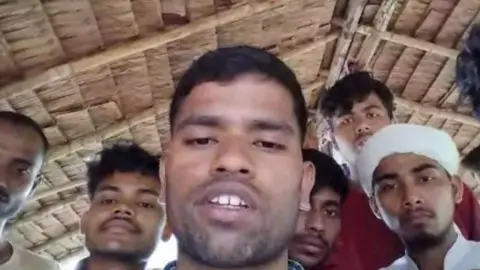The Dominican Republic has begun a controversial crackdown on undocumented migrants, arresting more than 130 Haitian women and children on the first day of operations at hospitals in Santo Domingo. Many of these women were pregnant, while others had recently given birth, highlighting the severe implications of the government's policy.
This initiative is part of the government's ongoing strategy to deport up to 10,000 undocumented migrants weekly, stemming from a plan announced last year aimed at curbing the influx of migrants from Haiti. President Luis Abinader's administration has faced backlash for its rigid approach towards Haitian migrants, who are escaping dire circumstances including rampant gang violence and extreme poverty in the capital, Port-au-Prince.
The immigration department has asserted that those detained were provided with "dignified treatment," though concerns remain about the adequacy of care. A Haitian woman who had gone with her pregnant friend to the hospital expressed fears of uncertainty for pregnant women in need of assistance: "If a woman gave birth today, they can't take her today, because they don't know what will happen... there is never a doctor with her to assist," she lamented.
Officials claim the detained women will receive necessary medical treatment, and undocumented mothers will be repatriated. As migration from Haiti surges, the Dominican Republic has expelled over 80,000 individuals back to Haiti in the first three months of the year, a statistic reported by AFP news agency.
President Abinader has previously voiced his frustration towards the global community's inaction in restoring peace and stability to Haiti, thus complicating the migration crisis for neighboring countries like the Dominican Republic.






















